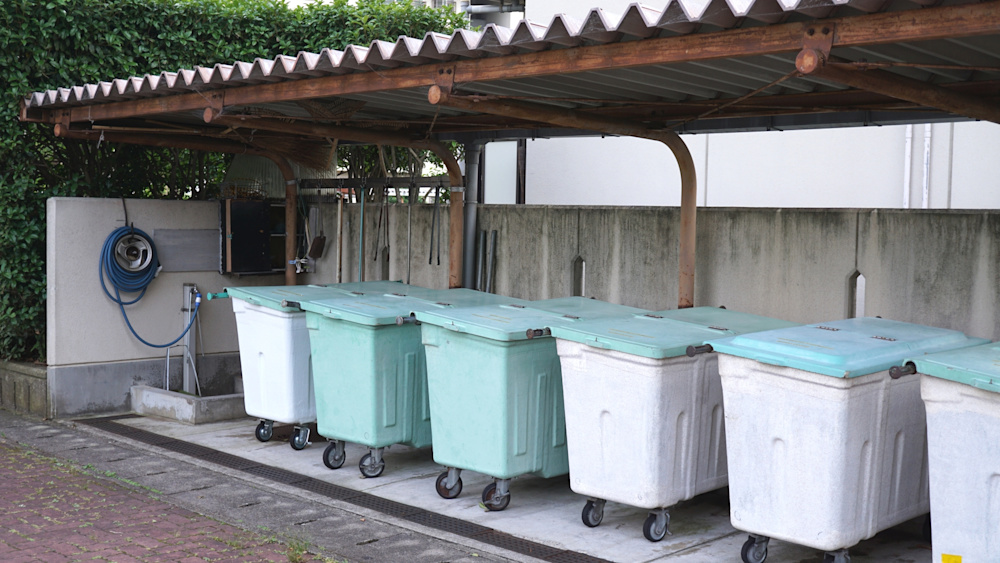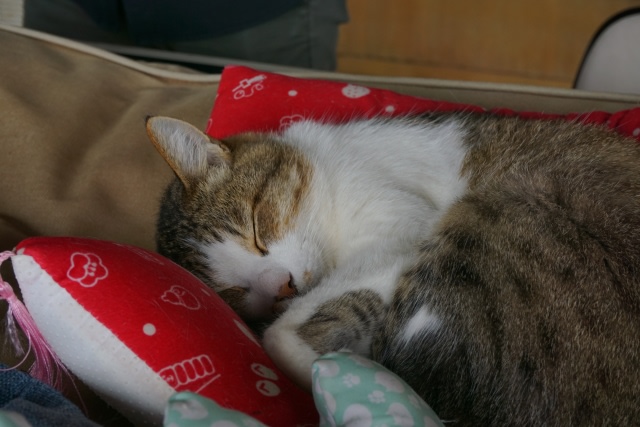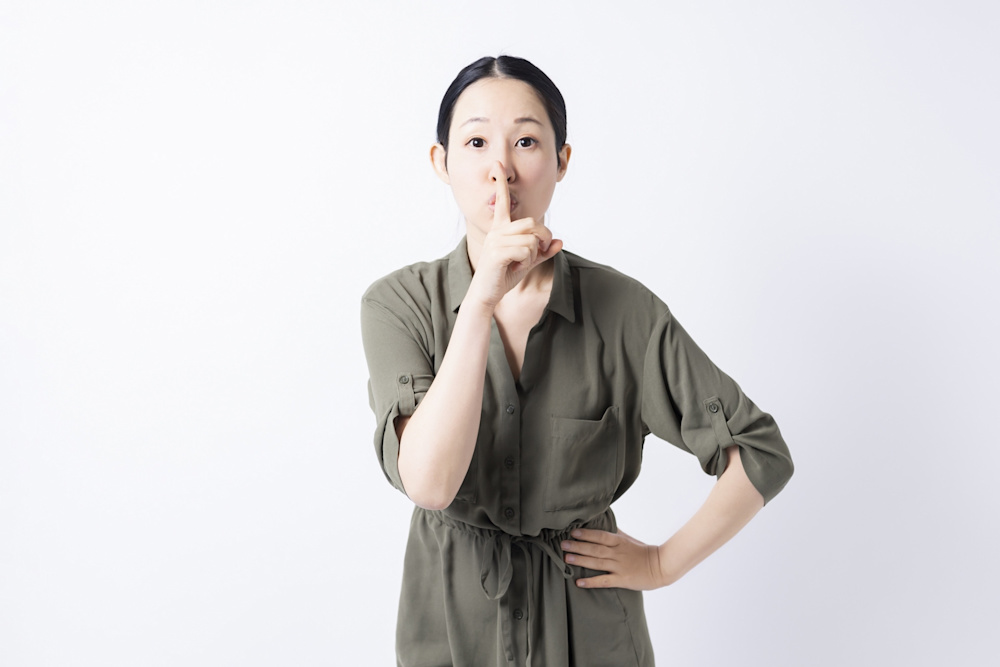Updated October 21, 2025
Apartment Rules in Japan (and How to Avoid Breaking Them)
You've finally found your perfect apartment in Japan—congratulations! But before you settle in, you should know that Japanese apartment living follows a specific set of rules that might catch you off guard.
These rules exist for good reasons, and once you understand them, you'll actually appreciate how they create such a peaceful living environment. Whether you're looking for apartments in Japan as a foreigner or have already signed your lease, this guide will help you navigate apartment life with ease.
In this article: 📝
What You Need to Know Before Moving In
Japanese apartment living is built on a philosophy that prioritizes community harmony over individual freedom.
When you're moving in Japan, you'll quickly discover that your lease agreement isn't just about paying rent on time. It's a detailed contract that covers behavior expectations, noise levels, and even who can sleep over. Violating these terms isn't just socially awkward but can actually get you evicted.
Apartment rules in Japan are obligations that your neighbors, landlord, and even local authorities take very seriously, and you should too! But once you get the hang of it, you'll probably find yourself enjoying the quiet, respectful environment these rules create.
Rules You Can’t Ignore: What Is Apartment Etiquette in Japan?
Japanese apartment rules go way beyond what you might expect from your home country, covering everything from when you can use your washing machine to how you separate your garbage. These restrictions are built around the concept of “wa” (harmony), which emphasizes avoiding disruptions to your neighbors’ peace.
1. Noise Rules: The Golden Hours of Silence
Quiet hours typically run from 10 PM to 8 AM, and during this time, you need to keep noise to an absolute minimum.
This doesn’t include only loud music but also conversations, TV volume, footsteps, and even using appliances like washing machines or vacuum cleaners.
Japanese apartments often have surprisingly thin walls, so what feels like normal volume to you might be keeping your neighbor awake. During quiet hours, keep these guidelines in mind:
TV and music should be barely audible outside your room
Phone conversations should be whispered or avoided entirely
Avoid dragging furniture or walking heavily if you're above someone
Don't use washing machines, vacuum cleaners, or other noisy appliances
Even opening and closing doors should be done gently
Also, you need to understand that even during daytime hours, excessive noise can still cause problems. The general rule is to always be mindful of your sound levels, regardless of the time.
2. The Shoe Rule: A Cultural Expectation
Taking off your outdoor shoes at the entrance (genkan) is an expectation that management companies assume all residents will naturally follow, even though it's typically not written into lease agreements.
Here's how it works:
Remove shoes immediately upon entering
Change into indoor slippers or go barefoot
Never step directly from the genkan into your living area with outdoor shoes on
This custom, which we also cover in our guide about disrespectful things to do in Japan, is deeply ingrained in Japanese culture and helps maintain cleanliness throughout the living space.
3. Garbage Separation: Master This or Face the Consequences
Japan has one of the world's most complex waste separation systems, and getting it wrong will definitely annoy your neighbors. Each area has specific rules, but most places require you to separate waste into at least these categories:
Burnable waste (可燃ごみ): Food scraps, paper, and organic materials.
Non-burnable waste (不燃ごみ): Glass, ceramics, small metal items.
Recyclables (資源ごみ): Plastic bottles, cans, glass bottles, clean paper.
Oversized items (粗大ごみ): Large items requiring special pickup
The key rules everyone needs to follow:
Only put garbage out on designated collection days for each type.
Use the correct bags (some areas require specific colored or bags authorized by the local government).
Clean containers before recycling them.
Never leave garbage out the night before collection.
Follow specific preparation requirements (like removing caps from bottles).
Get any one of these wrong, and you might find your garbage returned to your doorstep with a less-than-friendly note attached.

4. No Renovations Without Permission: Your Apartment Isn't Really Yours
Any modifications to your apartment – and we mean ANY – require written permission from your landlord.
In Japan, tenants must restore the property to its original condition when moving out (excluding normal wear and tear). This means:
Painting walls, installing fixtures, or mounting anything heavy requires approval.
Even temporary modifications like removable wallpaper might need permission.
Structural changes, electrical work, or plumbing modifications are typically forbidden entirely.
The smart approach here is to ask your landlord before making any changes, no matter how small they seem. Many are reasonable about minor, reversible modifications if you communicate properly.
5. Smoking: Your Balcony Isn't a Private Space
Here's something that surprises many foreigners: Smoking on your balcony is prohibited in most Japanese apartments. Balconies are considered common areas and emergency escape routes, not private outdoor spaces.
Smoking restrictions usually include:
No smoking on balconies (yes, even outdoor ones).
No smoking in hallways, stairwells, or any common areas.
Indoor smoking might be allowed, but it will cost you thousands in cleaning fees when you move out.
Some buildings have designated smoking areas where you can smoke without a care, but I wouldn’t count on them to be in every building.
If you do smoke indoors, be prepared for significant charges when you move out. Landlords often require complete wallpaper replacement and intensive cleaning to remove the smoke stains and odors.
6. Shared Spaces: Keep Common Areas Pristine
Hallways, entrances, stairwells, and elevators must remain clean and unobstructed at all times.
Here are some etiquette rules you should follow in common areas:
Never leave personal items like bicycles, strollers, or shoes in hallways.
Keep conversations quiet when passing through shared spaces.
Clean up any spills or messes immediately.
Don't smoke anywhere in common areas.
7. Meeting Your Neighbors: The Introduction Ritual
When you move in, it's customary to introduce yourself to immediate neighbors with a small gift. This practice, called aisatsu, helps establish positive relationships from day one.
Here's how to do it right:
Visit neighbors within your first week.
Bring a small gift worth 500-1,000 yen (cookies, snacks, or household items).
Introduce yourself briefly and mention you've just moved in.
Apologize in advance for any potential inconvenience.
Keep the interaction short and respectful.
If you're planning to have guests over or anticipate making noise (like during moving day), giving neighbors advance notice with a small apology gift goes a long way.
8. Pet Policies: Most Places Are Pet-Free Zones

The majority of Japanese apartments completely prohibit pets, and violating this rule can get you evicted immediately. If you have pets or want to get one, this needs to be confirmed before you sign anything.
For the rare pet-friendly apartments, you'll need to register your pet with the landlord and pay additional deposits and monthly fees, which are standard practices.
Keep in mind that even if you live in a pet-friendly apartment, your pets cannot disturb neighbors with any kind of noise. Additionally, setting aside some extra money for cleaning charges is another good idea for when you move out of the apartment.
9. Who Can Live in The Apartment: Guest Rules Are Strict
Your lease specifies exactly who can live in the apartment, and having unauthorized long-term guests can violate your agreement.
So, here are some key rules you can follow to make sure you’re not violating your contract:
Follow the contract limitations: Only people listed on the lease can live there permanently.
No unannounced guests: Extended guest stays (more than a few nights) often require permission.
No subletting: Subletting is typically completely prohibited.
10. Musical Instruments: Often Banned Entirely
Many apartments don't just prohibit playing instruments, but they outright ban bringing them into the unit at all. This preventive approach eliminates any possibility of noise complaints.
So, if you're a musician, be sure to:
Look specifically for "instrument-friendly" apartments.
Play your electronic instruments with headphones on.
Rent a separate practice space if you need to practice regularly.
Always check the residence policies before signing your lease.
So, while the “no instruments” approach might scare you, this isn’t a “no musicians” rule but a “no musical instrument noise” rule. As long as you keep the noise down (i.e., by using headphones or a soundproof booth), renting as a musician shouldn’t be a problem.
Dealing with Problem Neighbors: The Japanese Way
Sometimes, despite your best efforts, you'll encounter difficult neighbors. In Japan, there's a very specific cultural approach to handling these situations that prioritizes indirect communication over direct confrontation.
What this means is simple: Never confront your neighbor directly. It might feel natural to go speak to them when a noise occurs, but in Japan, it's considered inappropriate and can actually make things worse.
Instead, here are some steps you can follow:
Document everything first: Keep detailed records of problems, including dates, times, duration, and specific issues. This documentation becomes crucial if things escalate.
Contact property management: Write a formal letter describing the situation and submit it to your building's management company. They'll typically send a general notice to all residents without revealing who complained.
Use police consultation services: For ongoing issues, call 9110, which is the non-emergency police consultation line that’s available in Japanese, English, Chinese, and Korean. Police will mediate and speak to your neighbor on your behalf.
Consider practical solutions: While waiting for resolution, invest in noise-canceling headphones, earplugs, or adjust your schedule to minimize the impact on your daily life.
Avoiding Common Apartment Problems: What Are The Rules For Rent in Japan?
Understanding what typically causes neighbor disputes can help you avoid becoming the source of complaints.
Coming in first place, noise problems cause the majority of neighbor-to-neighbor conflicts. Some common issues are:
Late-night TV or music (even at moderate volumes).
Loud phone conversations, especially near windows.
Heavy footsteps or slamming doors.
Using appliances during quiet hours.
Children playing loudly indoors.
Garbage issues are the second biggest complaint source, with the most common problems stemming from:
Wrong collection days or improper separation.
Leaving trash in common areas.
Strong odors from improperly stored waste.
Not following local preparation requirements.
Finally, the misuse of balconies is another topic that frequently causes friction among residents:
Smoking, the most common balcony complaint.
Hanging large items that block views.
Making noise during phone calls.
Using balconies for excessive storage.
Understanding The Cultural Context Behind Apartment Rules in Japan

All these rules might seem excessive if you're coming from a more individualistic culture, but it’s important to understand where this all comes from if you’re serious about integrating into the culture here.
For one, these rules simply reflect important Japanese values about community living and mutual respect.
The concept of meiwaku (causing trouble for others) is vital to Japanese apartment life. Some of the actions we described might be perfectly normal in other countries, but can be seen as deeply inconsiderate here.
The upside is that these rules create genuinely peaceful living environments. When considering the average rent in Tokyo and other major cities, part of what you're paying for is this highly regulated, quiet community atmosphere.
Special Considerations for Different Housing Types
If you're staying in a Japanese mansion (which, confusingly, just means an apartment building), the rules tend to be more strictly enforced than in smaller buildings. Larger buildings often have management companies that actively monitor compliance.
For those living in monthly apartments in Tokyo, don't assume short-term status gives you any leeway to be noisier. These rules apply equally to temporary residents, and building communities may even be less tolerant of mistakes from people they know won't be around for too long.
Financial Consequences of Rule Violations
Setting aside the social embarrassment, breaking apartment rules can hit your wallet hard. On top of standard costs like key money, you could face additional charges for rule violations, such as:
Smoking damage: Complete wallpaper replacement and deep cleaning often costs $150-800.
Unauthorized renovations: Full restoration plus penalties.
Excessive noise complaints: Possible mediation fees or early lease termination.
Improper garbage disposal: Cleaning fees and local government fines.
Conclusion on Japanese Apartment Rules
The Japanese apartment rules we shared might feel like a lot at first, but they're what create those incredibly peaceful living environments Japan is famous for. The trade-off is simple: You have to make a conscious effort in exchange for quiet, respectful neighbors who won't blast music at 2 AM.
Also, keep in mind that most conflicts come from misunderstandings, not malice, so when you're unsure about something, just ask your landlord or property management company.
Master these apartment basics, and you'll be well on your way to thriving in Japan. For more insights on integrating into Japanese society, check out our guide on disrespectful things to do in Japan, which includes tips to avoid other common cultural mistakes.
Get Job Alerts
Sign up for our newsletter to get hand-picked tech jobs in Japan – straight to your inbox.









